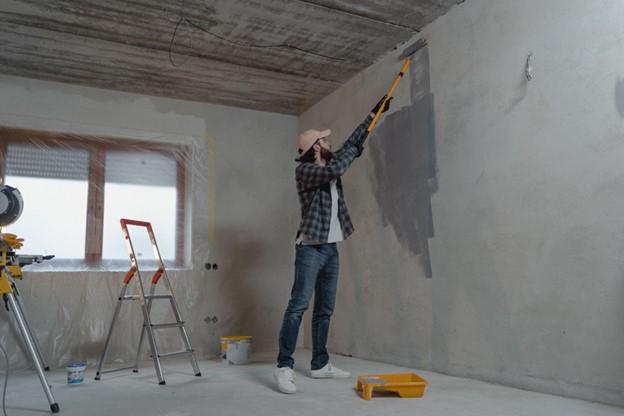Ease of Access: Simplifying the Search for Your Next Home
Image via Freepik
By Maria Cannon
Finding a home that meets accessibility needs can feel like navigating through a labyrinth. However, with the proper guidance, you can find a living space that meets and exceeds your expectations for comfort, accessibility, and convenience. This US Delta Realty article will guide you through essential considerations and practical steps to ensure your next home suits your requirements.
Define Your Non-Negotiables
The quest for an accessible home begins with a clear understanding of essential features that cater to your or your family’s unique needs. Prioritize elements such as step-free access, wide doorways, and specialized bathroom fittings. Recognizing these non-negotiable features early on simplifies the search, directing your attention to homes with a solid foundation for accessible living.
Future-Proof Your Living Space
Anticipate the evolution of your needs over time to ensure the home remains a comfortable sanctuary through various life stages. Considering potential future requirements allows for selecting a home that serves you today and can adapt to tomorrow’s changes. This forward-thinking approach ensures longevity and satisfaction with your choice.
Expert Insight
Navigating the market for an accessible home benefits immensely from professional insight. Align yourself with a real estate agent with wealth of experience in accessible properties. Their specialized knowledge can unlock access to homes that match your criteria, streamlining the search process and providing valuable advice on the feasibility of modifications to potential properties. Connect with US Delta Realty today!
Inspect with Intent
Once a prospective home catches your eye, a meticulous inspection focused on accessibility is paramount. This step ensures the property meets basic needs and offers the possibility of becoming a genuinely accommodating environment. It’s about envisioning a space where convenience and accessibility merge seamlessly.
Digital Document Management
In today’s digital age, maintaining an organized and easily accessible archive of housing-related documents is paramount. Opting to digitize these crucial files streamlines the management process and secures them against physical damage or loss.
Utilizing PDFs as the format of choice ensures uniformity in formatting and content, making these documents readily accessible across various devices and operating systems, thereby eliminating compatibility or accessibility concerns. You can use a PDF converter to facilitate this transition.
This handy online tool simplifies converting files into PDF format with an intuitive drag-and-drop feature. This approach enhances document organization and contributes to a more efficient and stress-free home buying or selling experience.
Embrace Potential Modifications
Should a potential home fall short of your accessibility requirements, evaluate the possibility of modifications. Assessing a property’s adaptability can reveal opportunities to tailor the space to your needs. This perspective opens up a broader range of housing options, some of which may require a bit of creativity and investment to transform into your ideal accessible home.
Funding Accessibility
Investigate financial assistance options for purchasing and modifying an accessible home. Grants and loans designed for these purposes can alleviate the financial burden, making it easier to secure a home that meets your accessibility needs. Awareness and utilization of these resources can be crucial in achieving your housing goals.
Neighborhood Matters
The right home extends beyond the confines of its walls. Explore the accessibility of the surrounding neighborhood, including proximity to services, public transportation, and community resources. An accessible home in a supportive community enhances the quality of life, ensuring that you enjoy both the comfort of your dwelling and the convenience of local amenities.
Wrapping Up
Embarking on the journey to find an accessible home might initially seem daunting. However, you can confidently navigate the process with careful planning, a clear understanding of your needs, and the proper professional assistance.
By prioritizing essential features, considering future needs, and exploring modification possibilities, you set the stage for finding a home that meets and exceeds your accessibility requirements. Remember, the perfect home is ready to welcome you into a space where convenience, comfort, and accessibility are harmoniously blended.









 Photo by
Photo by